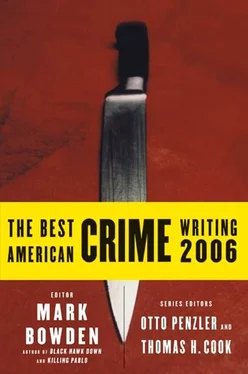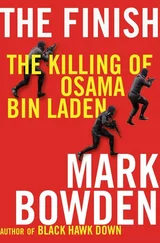Lessig speaks for only twenty minutes. He is rarely interrupted. The judges' eyes widen when Lessig says that "between thirty and fifty percent of the boys at this school were sexually abused or harassed." And they squirm in their chairs when Lessig-emboldened by the fact that a Piper Rudnick associate has found something in the record to support the Hanson revelation-announces, "It was the perversion of this music director… to believe that sexual abuse was part of producing a wonderful boychoir."
When Lessig is done, Greenblatt, clearly irritated, stands up and offers his rebuttal. Of the Hanson revelation, he says, "How convenient…I know of no such fact." And of the 30 to 50 percent figures, he continues, "[T]hat might be personal knowledge of Mr. Lessig, but it hasn't been in the record of this case."
Sitting in a high-backed chair, Lessig cringes as if he's been stabbed in the stomach, glares at Greenblatt, and shakes his head. He's just been outed in open court.
Afterward, Lessig, the Hardwickes, and the legal team drive to Princeton for lunch.While everyone believes that the argument went well, they are stunned by Greenblatt's indiscretion.Walking into the lobby of the restaurant, a French place off Nassau Street, Lessig turns to his companions and says softly, "Hanson took me here for dinner."
Later that afternoon, Lessig flies home to California, where he receives a barrage of vituperative faxes from Greenblatt-which the school's lawyer has helpfully cc'd to the press. Greenblatt insists there's nothing in the record to support Lessig's surprise assertions. He makes repeated insinuations about Lessig's "firsthand knowledge." And, hurling charges of "mendacity," he says that "Hanson surely would have been fired years earlier" had Lessig spoken out during his stint on the board.
A few weeks later, Greenblatt elaborates to me. "He had a responsibility not only to the children but to the school," he says. "And if he had that knowledge, didn't divulge it, and any child was injured thereafter by Hanson, then he bears that responsibility- and perhaps, just perhaps, that plays some part in his role in this matter."
Lessig's reaction to Greenblatt's gambit is disgust mixed with shock and rage. In faxes of his own, Lessig calls his outing a "breach of a basic sense of decency" and professes to be "astonished" by Greenblatt's "ignorance of the facts in this case."
I ask Lessig about Greenblatt's charge that by failing to expose Hanson earlier, he bears a measure of guilt.
"I do feel that," Lessig says. "But I don't suffer that feeling, because very quickly I recognize what it is to be a teenager."
To Lessig, Greenblatt's charge is a tawdry attempt to score points at the expense of his reputation."Before this case, I never would've had a desire that the Boychoir School close," Lessig says. "It's an interesting place, it's a great experience, it teaches kids to work hard. But the way I feel about it now is, fuck it. If they have to shut down because of this case, I don't care."
Everyone connected to Hardwicke v. American Boychoir School assumed that the supreme court would have ruled long before now. Every morning, they check the Web to see if the opinion has been posted.
For Don Edwards, victory would mean the school could bury its lurid past, at least legally speaking. A loss would open the door to suits from other boys whose alleged abuse Hardwicke has dredged up. Edwards says,"It's not like I wake up thinking the case will destroy the school-but it's not impossible that it could."
For John Hardwicke-and for all the potential child-sex-abuse litigants against the Catholic Church in New Jersey-a negative ruling by the supreme court would be a devastating blow, if not a mortal one. He is currently among a group of campaigners working on a parallel track to persuade the state Legislature to amend the Charitable Immunity Act so that it clearly exempts cases of child sexual abuse. At the same time, a ruling in his favor would mean that Hardwicke is only one step closer to putting his case before a jury. "I'll actually be in the position where I thought I was four years ago," he says."I think I'll be ninety-five years old going, I think we're just about done."
Yet even if Hardwicke does collect a monumental payout, it's far from clear that money will make him whole again. As he sits in his living room, talking about his high-achieving siblings-one brother a partner at a large law firm, one sister an executive at Ernst and Young-his ravaged expectations for himself are never far from the surface. If not for what took place at the school, he says, "I think that I actually could have been a leader of my fellow people. I could've gone on to be a lawyer or politician or something really helpful to society."
Lessig, of course, is exactly that, and the disparity between his and Hardwicke's lives suggests that the metaphor coined by the latter may in fact be true: When it comes to consequences of child sex abuse, it really does depend on where you were sitting in the car. It affects different people in profoundly different ways.
"This thing happened to me," Lessig says, "and I can see how it changed me. But to be too angry about it would require me to kind of hate myself. Now, there are certain things I did hate about what it did to me: the way I would destroy relationships and the pain I would inflict on people when I did. But there are other parts-the weirdness of me and my relationship to the world. Being deeply reflective about institutions, responsibilities, and my role. Spinning deeply from the age of fourteen about issues.And it's like, well, if this hadn't happened to me, who would I have been? Maybe I would have gone to work with my dad and run the steel plant and become a Republican congressman from Williamsport. I would have been a totally different person."
Lessig's sense that the effects of his abuse have been less than cataclysmic is among the reasons Donald Hanson has never been his bete noire. A few years after being fired by the school, Hanson decamped for England, where Lessig ran across him one day in Cambridge -and went punting with him on the Cam. (Since then, Hanson has been hiding out in France, or in Switzerland, or in Canada; no one is certain where.)
"I've never felt angry, or really angry, at Hanson," Lessig says. "Hanson's sick. He's got a disease.The real evil isn't the Hitler.The evil is the good German. The evil is all those people who could've just picked up the goddamn telephone and stopped it."
For Lessig, the Hardwicke case is a chance to battle the good Germans he sees as still inhabiting the Boychoir School and other, similar institutions: "I'm not trying to punish them," he says. "All I'm trying to do is get them to pick up the phone."
But Lessig's participation in the case (and in this story) is about something more, I think.All along, Lessig has gone to great lengths to keep his parents from learning that he was working on the Hardwicke litigation-and thus confronting his abuse with them. The question, though, is how far in the dark Lessig's parents actually are.
Lessig once told me a story about the summer after he left the Boychoir School. Hanson invited him to take a trip to the Hanson family compound in Canada. Lessig badly wanted to go. But his mother said no, and when Lessig asked why, she said,"I don't know, there's something weird about this." Lessig threw a titanic fit. "I screamed, slammed the door, walked out of the house," he said. "I came back three hours later, and we never said anything about it ever again." Lessig paused. "They knew."
So if they knew-that is, they know-isn't keeping it from them a charade?
"You underestimate the power of the human mind to ignore things that aren't placed right in front of you," he said. "It doesn't have to be such a successful charade to succeed in not forcing them into this deeply depressing, painful recognition of not taking steps to protect your kid."
Читать дальше












